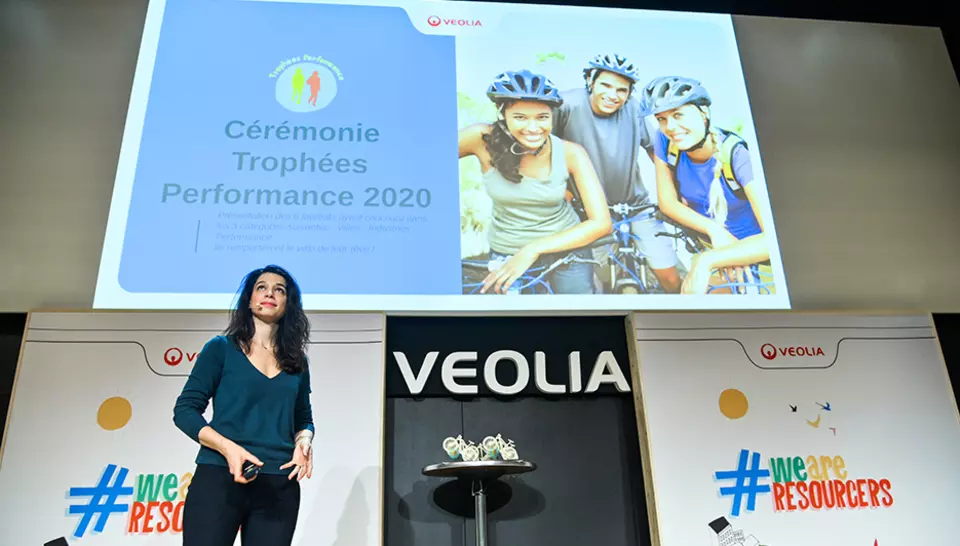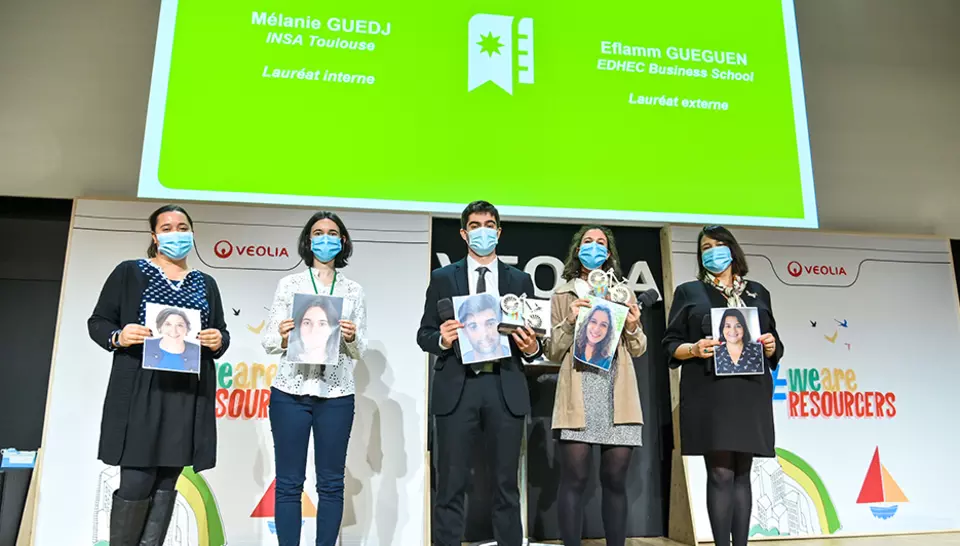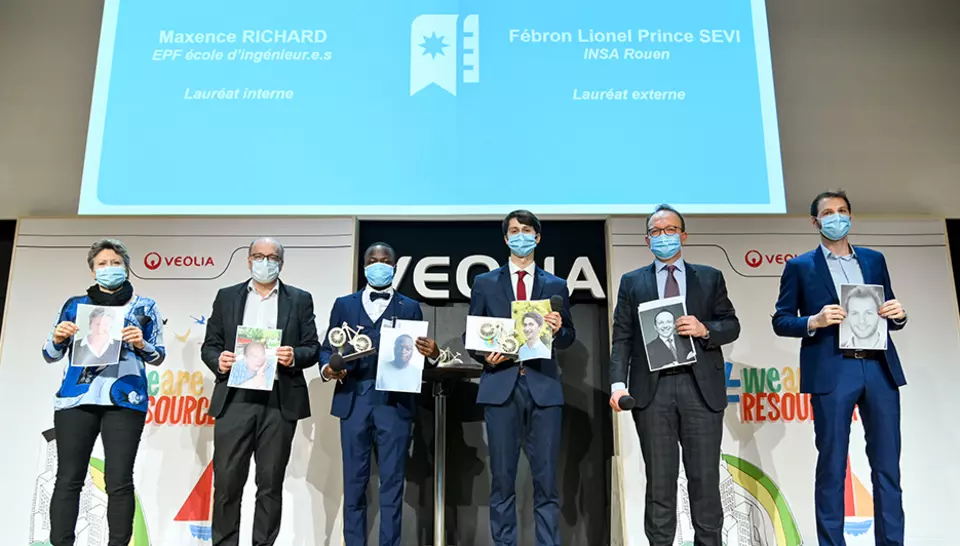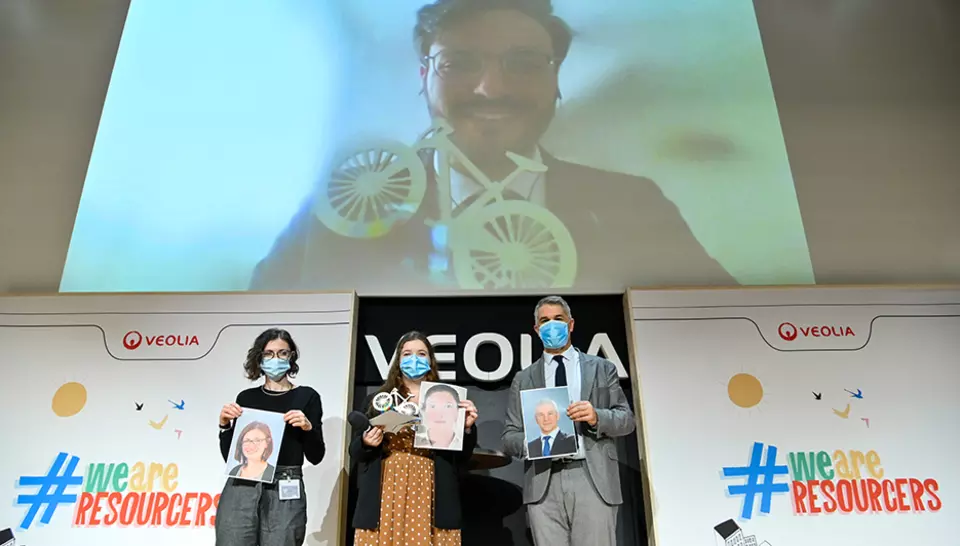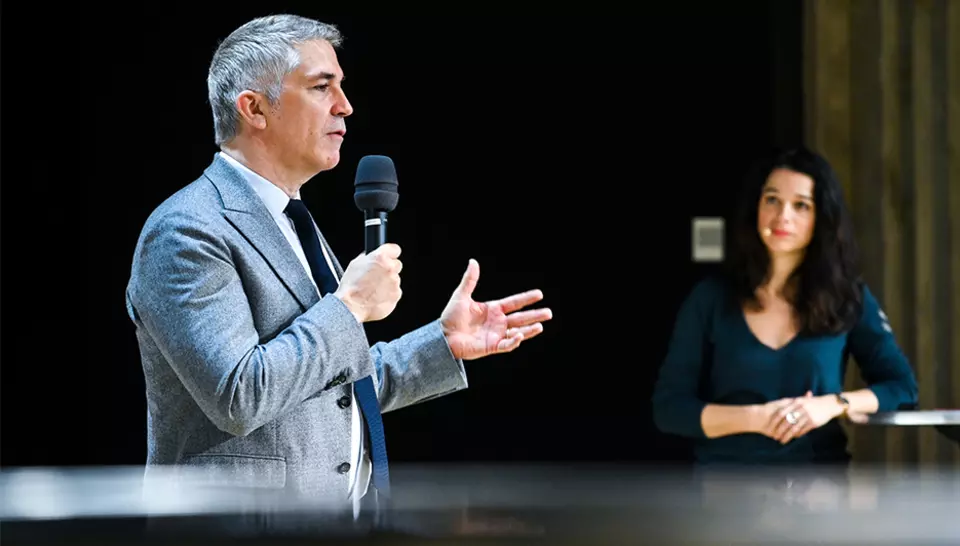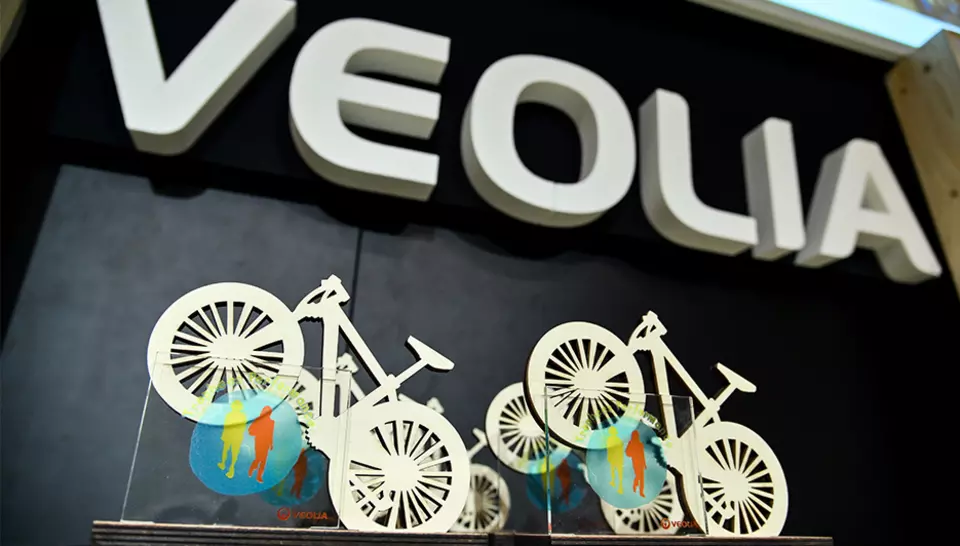
Of the 68 entries for the 2020 Performance Trophies, 39 eligible entries from 17 schools were presented to Veolia's reading committee, which selected 20 in the "Cities", "Industries" and "Performance" categories. The 20 finalists defended their work via a video conference link before a jury of experts which assessed them on the basis of 4 criteria: the feasibility and originality of the solution, ability to communicate and quality of the document submitted, maturity of the thinking and connection with Veolia's businesses
Introducing the ceremony, Caroline Geoffrois, Young Talent Acquisition manager, pointed out that these Veolia Performance Trophies reward the innovation and talents set to invent the solutions and technologies that will lay the groundwork for tomorrow's world.
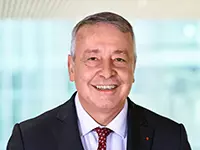
In a video, Veolia's CEO, Antoine Frérot, congratulated the six winners:
"This year, your many, varied, rich and high-quality projects reflect your commitment and perseverance. And it is all the more remarkable that you have completed them during a particularly difficult year. But you stood your ground. I congratulate you, and we are very proud to reward you. Don't stop here. We are counting on you to achieve the ecological transformation the world needs."
The awards were presented by Isabelle Quainon, Senior Vice President Human Resources, for the Performance category; by Marc-Olivier Houel, Director of France Veolia Environmental Maintenance Industry & Building zone, for the Cities category; and by Jean-François Nogrette, Senior Executive Vice President Veolia Technologies and Contracting and member of the Executive Committee, for the Industries category. Each winner received a fully-equipped electric or mechanical bicycle (anti-theft device, helmet, saddlebag, rain gear, etc.) worth €1,800 from Veolia Environnement's network of partner stores Zenride.
Each winner's school also receives a €4,000 endowment*.
* in the form of the apprenticeship tax
The six winners
Performance category
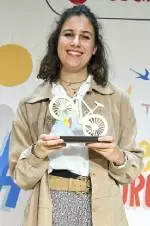
● Mélanie GUEDJ, from the Institut National des Sciences Appliquées (INSA) in Toulouse, France – Performance / Internal Trophy (Business Tool Project Manager, since recruited to the Business and Performance Support Department, Veolia France).
Subject: digitize waste treatment plant records
To manage waste treatment plants, operators take daily readings (consumption, temperature, pressure, etc.). The PRISM mobile app allows these readings to be taken directly via a smartphone. Deployed at Veolia's 250 waste recycling and recovery plants in France, PRISM will improve the analysis of site performance by, for example, anticipating maintenance operations. This project incorporates dashboards for monitoring production at corporate level.
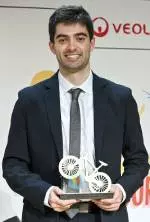
● Eflamm GUEGUEN, double degree from EDHEC Business School and the Ecole Centrale de Lille, France - Performance / External Trophy.
Subject: Maximize the risk/return profile of an investment in power generation from renewable energy microgrids
The diversification of renewable energy sources in mini-grids improves the risk/return profile for investors. The project consists of simulating a portfolio of three renewable energy mini-grids - solar photovoltaic, biomass and hydropower – supplying power to a village in Uttar Pradesh, India, in a region with a high potential for electrification and where legislation favours renewable energy mini-grids.
Cities category

● Maxence RICHARD, from the EPF school of engineering in Sceaux and Montpellier, France – Cities / Internal Trophy (since recruited as a commissioning engineer at Veolia Water Technologies).
Subject: Digitize the management of household waste recyclingThe Smart Incineration tool improves the management of Veolia's household waste-to-energy plants. It collects data in real time from process sensors at the operating sites, which are analysed to validate key indicators – also in real time. After a decisive trial at the Bourgoin-Jallieu plant, the tool will be deployed in all Veolia's waste-to energy units by 2023.

● Fébron Lionel Prince SEVI, from the Institut National des Sciences Appliquées de Rouen Normandie (INSA), France – Cities / External Trophy.
Subject : test inter-seasonal storage of heat drawn from road surfacesThe project aims to recover the solar energy captured by a road surface in summer and return it in winter to heat buildings. A digital simulation was used to validate a test device consisting of an energy-recovery road surface (30 m2), a geothermal storage facility (45 m3), a heat pump and a 20 m2 wooden building. Results obtained: 8 to 20% of the solar energy captured by the road surface is recovered to produce domestic hot water for 6 people and heat the equivalent of a 120 m2 low-energy dwelling, i.e. 3,150 kWh over one year. The demonstrator will be tested in 2021 on the site of the Université Savoie Mont Blanc.
Industries category

● Mathilde Perrin, from Ecole Nationale Supérieure de Géologie in Vandœuvre-lès-Nancy, France - Industries / Internal Trophy (completed her professional qualification contract in Veolia's Research and Innovation department).
Subject : sorting by mechanical separation of fines (suspended waste) from electrical and electronic equipment and electronic boards
The adaptation of sorting technologies to "urban mining" enables the metals contained in waste electrical and electronic equipment to be more effectively recovered as new raw materials. Once shredded, the electronic cards pass over a shaking table that separates the metals from flame-retardant plastics containing bromine. This process reduces the costly treatment of these residues, required by environmental standards from 2000 ppm. Adapted to each granulometry, the table settings reduce the volume of dust resulting from grinding by 85 to 98%, recovering almost all the metals with a purity of 80 to 86%. A hydrometallurgical extraction process then recovers high value-added metals such as gold.

● Alessandro Innocenti, from Milan Polytechnic (Politecnico di Milano) - Industries / External Trophy.
Subject : validate a physical lithium-ion battery model for economically viable reuseLithium-ion batteries in electric vehicles, once used, can enjoy a second life. They can store energy while retaining 80% of their capacity. To achieve this, a reliable and standardized measurement of the condition of used batteries and their remaining service life is required. A physical model (electrochemical - thermal-mechanical) uses three tests at different temperatures for 1 hour and 15 minutes to evaluate the performance and residual economic value of each battery.
The themes in the 3 categories:
• Performance: essential services; equitable distribution and conservation of resources; impact of activities on the environment and public health; environmental management.
• Cities: innovative services for water, energy and waste; circular economy; technological, financial and social solutions for quality of life; saving and renewing resources.
• Industries: sustainable solutions; waste recovery; soil remediation; dismantling of sensitive facilities; water recycling; energy management.


